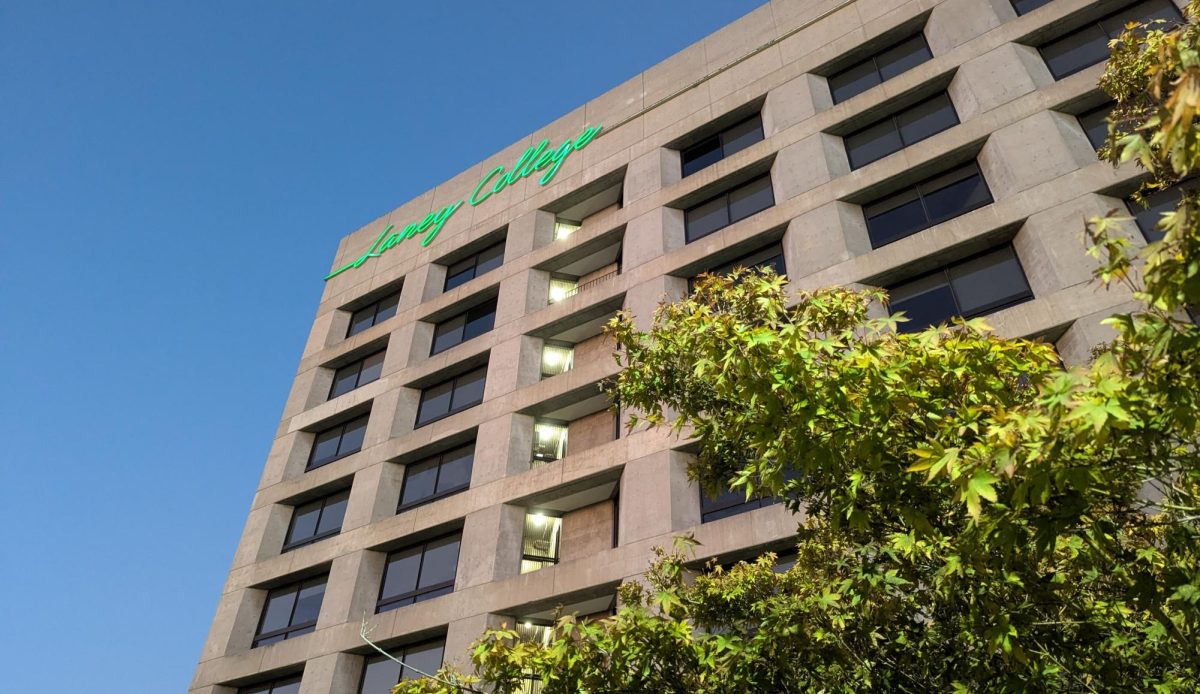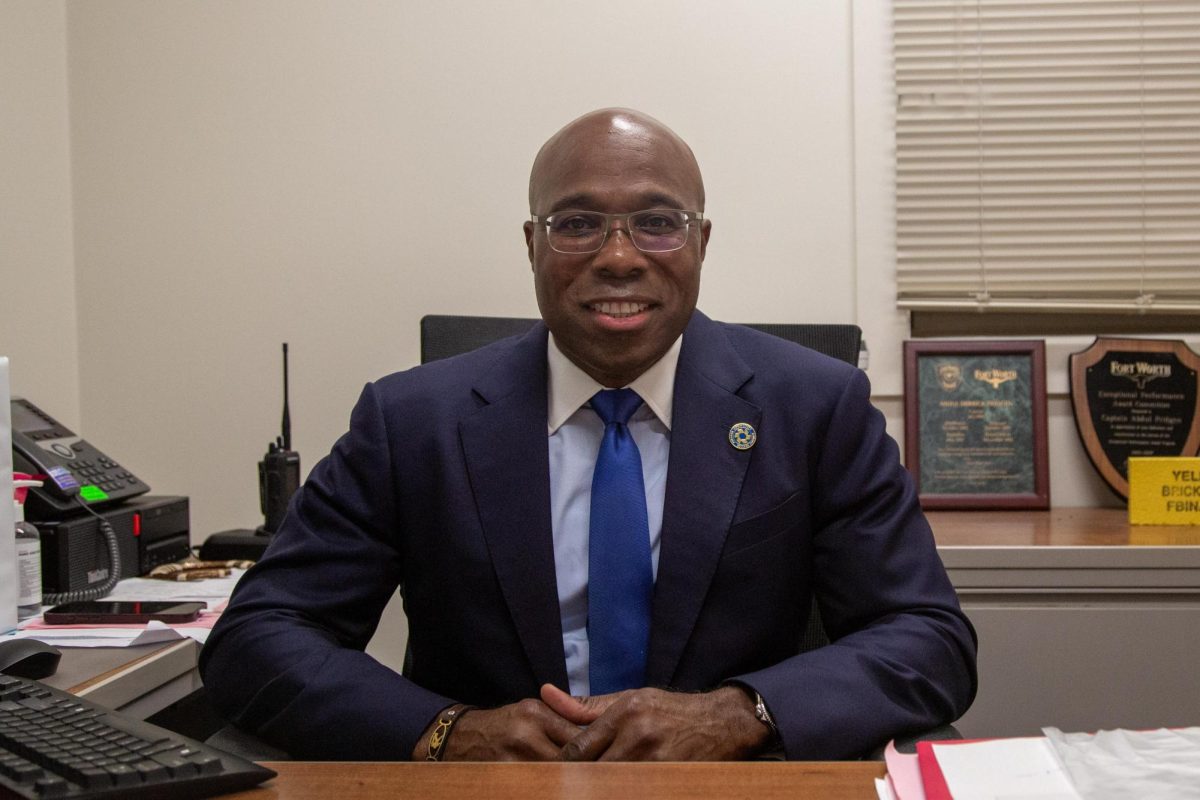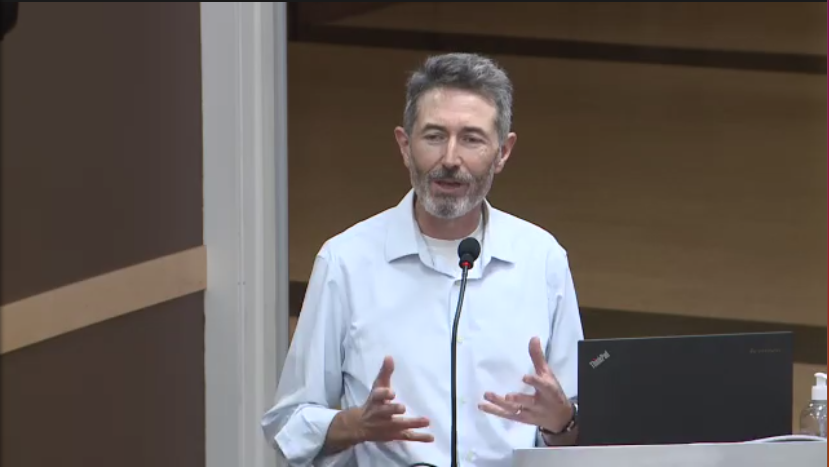Tonight, trustees at the Peralta Community College District (PCCD) will vote on the district’s 2023-24 budget, which does not have the support of the district’s Participatory Governance Council, the highest ranked shared governance council at Peralta. During the previous board meeting, members of the PCCD community raised questions and concerns over the shared governance procedures regarding the budget.
The PCCD Board of Trustees held an initial reading of the budget at their meeting on Sep. 12. During his District Academic Senate (DAS) report to the board, Matthew Goldstein, who serves on the Participatory Governance Council (PGC) as president of the DAS, expressed the PGC’s lack of support for the budget.
Goldstein holds one of the three chairs alongside the Chancellor and the President of the Classified Senate.
“No administrators voted with faculty and staff, and no faculty and staff voted with administrators,” Goldstein said. “And I think that’s a reflection of the lack of confidence that folks have in the shared governance process here and it forces the board to examine the document again that does not have the full confidence of the shared governance committee.”
Goldstein explained to The Citizen that the problem is “twofold.” He believes the shared governance committees need to be given a clearer calendar that would allow them adequate time to review the budget.
Goldstein told The Citizen that these review committees were only given “snapshots” and “assumptions” during the review process.
“We’re constantly in a position where we have to approve assumptions or approve a slideshow of power points, but we aren’t given the kind of opportunity to really review the budget,” he said.
“So much of what we do depends on adequate resources as they are allocated in the budget,” Goldstein added. “And we feel like in order to be colleagues and participants in our own professional lives, that we need to have a say in how money is allotted.”
At the Sep. 12 meeting, PCCD’s Interim Vice Chancellor of Finance and Administration, Nathaniel Jones III, presented the budget to the board of trustees.
After Jones’ presentation, some trustees shared concerns of their own following the proposed budget presentation, some overlapping with Goldstein’s.
“We’ve got huge problems that we don’t have money to fix and we keep hearing that we’ve got structural deficits that we’re not dealing with. That kind of problem demands unanimity,” said Trustee Nicky González Yuen.
He added, “I am encouraging us again to go back to the drawing board on this process thing and get it right, and don’t come back in a year and say, ‘well we didn’t have time,’ because I’ve been hearing that for way too many years and frankly, it’s just like, I can’t govern this way.”
Trustee Paulina Gonzalez-Brito added, “I have a lot of concerns about voting for a budget that didn’t go through a process that really has the support of all major stakeholders.”
While Jones said that he agreed with Goldstein that there should be more inclusion of “major stakeholders” in the budget decision making process, he also defended his team’s process.
“The process that we followed was what is indicated as the board approved Budget Development Calendar. That is what we did. The issue is our participatory governance bodies feel that that is inadequate, but that is the approved process, which we followed very methodically.”
The budget calendar for fiscal year 2023-2024 was approved by the trustees in January of this year.
In an interview with The Citizen, Jones mentioned that PGC’s vote is an “advisory vote.” Advisory votes are recommendations to the Chancellor, but do not make or break the decision.
Jones stated, “It is not possible for us to do additional engagement of PGC members on the budget and make changes on the budget.”
He is not sure how long PGC would need to review and provide feedback. “It really depends on how much they want changed,” he added.
One item on the budget that has raised concerns is the proposed Cost-of-Living Adjustment (COLA). While the state funded COLA being awarded to community colleges is 8.22%, PCCD’s budget allocated only 2%.
Jones mentioned that while some districts are able to give their employees full COLA pay increases, PCCD is not in good financial positioning to do so. He noted that even if the district were to award a 0% COLA to district employees the school would still face a significant deficit in funds.
According to Jones, the rate of COLA allocated to employee raises must be negotiated with the Union before it is confirmed, and it is currently undergoing the negotiating process.
Jones stated that his team would not be making changes to the proposed budget following the first reading. He added that if the Trustees do not approve the budget as is on September 26, then he cannot submit the budget by the September 30 deadline to the State Chancellor’s Office – possibly resulting in a delay or denial of state funding altogether for the fiscal year.
“Then we will have problems,” as Jones puts it.
The board meeting will be viewable live at 6pm on PCCD’s Youtube channel.
Correction 9/26 7:12 PM: An earlier version of the article incorrectly stated that Goldstein spoke during public comment instead of during his DAS report.





























